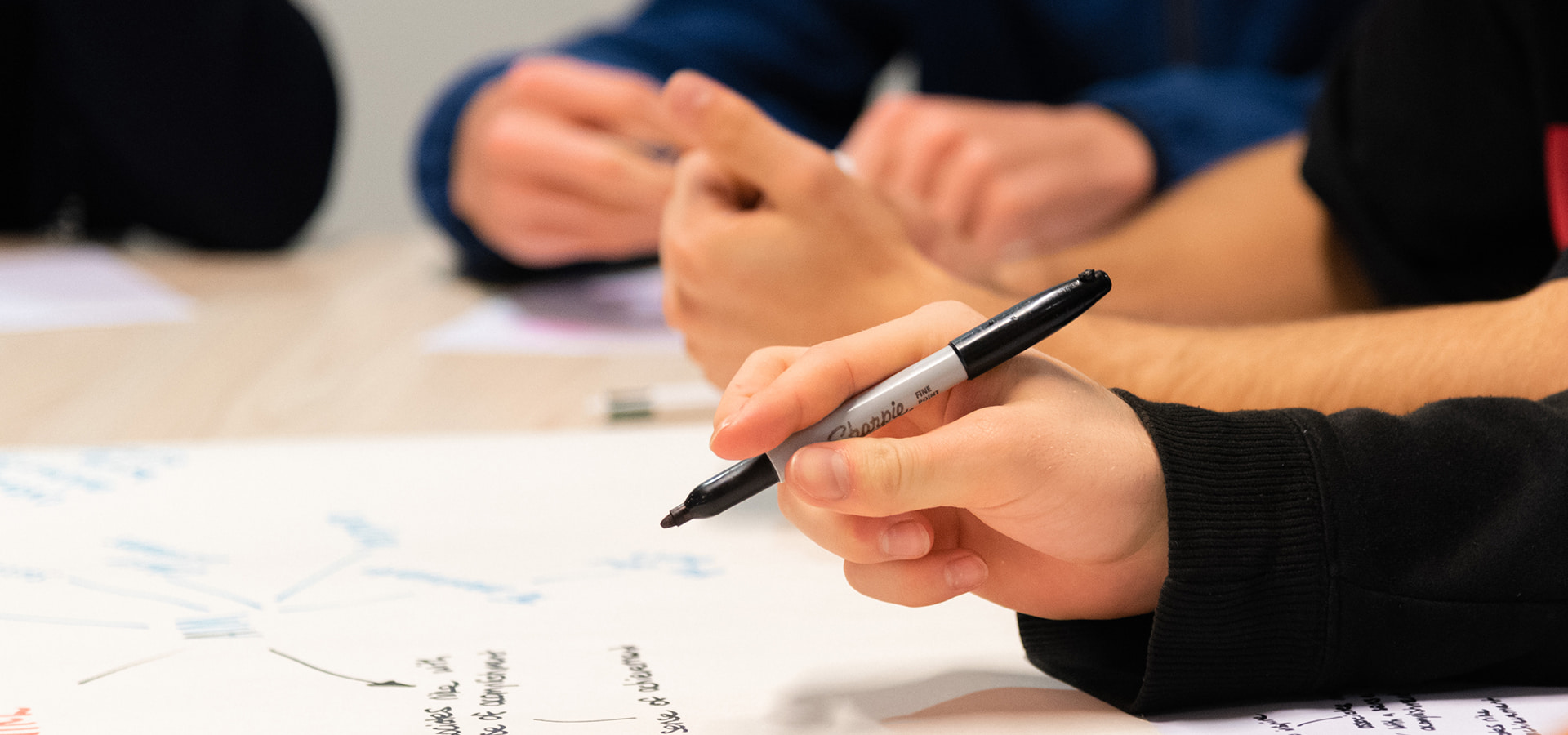Build your own business degree and rewrite what's next with the new Bachelor of Business at RMIT.
Are you a forward-thinker, creator, innovator, disrupter or driver of social change? It's time to build your own degree around your individual goals and interests.
RMIT’s newly-launched Bachelor of Business and Bachelor of Business Professional Practice are choose-your-own-adventure-style business courses that will give you the tools to shape the future, and it’s turning traditional learning on its head.
What’s new in the Bachelor of Business?
The Bachelor of Business and the Bachelor of Business Professional Practice replace all RMIT’s existing undergraduate business courses. So what’s new?
- We’ve swapped traditional exams and lectures for real-world problem solving*. You’ll build your knowledge the RMIT way: by getting hands-on experience with leading companies like Australia Post, the National Gallery of Victoria (NGV), Adobe, Medibank, the Australian Red Cross and Zoos Victoria.
- You’ll be the architect of your own educational experience. There’s full freedom to tap into your individual interests and goals by choosing any of our 14 majors and 35 minors. You could even choose not to complete a major and experience lots of different minors instead!
- You’ve got the option to add a year of industry experience. The Bachelor of Business Professional Practice is just like the Bachelor of Business, but with an extra year of real work experience. You’ll start with a virtual internship and dive deeper into direct partnerships, building your professional expertise before you graduate.
- You’ll graduate equipped with a digital portfolio to show for your newfound skillset. Your digital portfolio will be an invaluable resource for launching your career. It’s accessible at any time so you can even take it to job interviews.
What are majors and minors?
Majors and minors are like the units of study that will shape your degree. Majors are worth more credit points because they’ll be the primary focus of your study, whereas minors are secondary areas of study that are typically more specialised. There shouldn’t be any overlap between your majors and minors.
Put another way, think of your major like a burger and your minors as the sides you add on. Minors are designed to complement your major and give you well-rounded skills as a graduate – though they're not quite as tasty as fries or onion rings.
RMIT’s majors and minors within the Bachelor of Business have been chosen for their relevance and levels of demand in real-life companies. Blockchain Enabled Business, for example, can be undertaken as either a major or a minor. And did you know Australia’s CSIRO/Data61 group reports greater than 200% job growth year-on-year in blockchain skills since 2015?1
 Through the new Bachelor of Business, you’ll gain more than a degree: you’ll build the skills you need for life, such as a global mindset, a commitment to social impact, and intellectual and digital agility.
Through the new Bachelor of Business, you’ll gain more than a degree: you’ll build the skills you need for life, such as a global mindset, a commitment to social impact, and intellectual and digital agility.
What does this mean for my future career?
Through the new Bachelor of Business, you’ll gain more than a degree: you’ll build the skills you need for life, such as a global mindset, a commitment to social impact, and intellectual and digital agility.
You’ll also graduate ready to land a job in a competitive global space. By being able to choose your own majors and minors, and with the flexibility to change them along the way, you’ll find yourself at the forefront of innovation among the most exciting emerging roles.
One example of an emerging role you’ll be prepared for is the ‘hybrid role’ – or jobs that combine multiple skillsets. A marketing manager, for example, needs a combination of business acumen, creative thinking and analytical skills to succeed.
A recent report by Burning Glass Technologies even found that “Hybrid roles are growing at twice the rate of the overall job market, and are 20-40% higher-paying than their more traditional counterparts.”2
What if I don’t know what I want to study yet?
Feeling like everyone else in your year level has it all figured out? It’s totally okay if you’re not sure whether you’re destined to become a financial advisor, entrepreneur or marketing professional yet.
In the new course, your interests and goals shape your learning experience. The degree evolves with you, and you’ve got full flexibility to decide what’s right for you. As you're exposed to different hands-on experiences, you can adjust your degree along the way to pursue areas of study that speak to you, try new things, or continue with your specialisation.
The Bachelor of Business will help you pinpoint what’s most important for your future as an individual, developing your personal and professional identity in the process.
Plus, if you need support along the way, our awesome team at Study@RMIT will be here to guide you! What comes next is yours to write...
Story: Pallavi Daniel
*Except where required by accrediting bodies.
1 ACS, Data61, CSIRO. Blockchain 2030 - A Look at the Future of Blockchain in Australia. ACS, 2019.
2 Sigelman, Matthew, et al. The Hybrid Job Economy: How New Skills Are Rewriting the DNA of the Job Market. Burning Glass Technologies, 2019.